Dame Janet Suzman talks to Georgia Economou of NEWS 24/7: "The Parthenon sculptures belong to the country that "gave birth" to them, not to a cold museum in England."
Dame Janet Suzman, Chair of the British Committee for the Reunification of the Parthenon Marbles (BCRPM) and an internationally renowned actress talks to the Magazine about the Parthenon Sculptures and their long-suffering plight, plus the campaign to reunite them in the country that "gave birth" to them, their country of origin.
The Parthenon sculptures continue to make headlines in news outlets all over the world, not least in Greece. One could say that Lord Elgin's bribes and the men he paid to detach these sculptures from the Sacred Rock of the Acropolis, and their subsequent exhibition at the British Museum constitutes to a great cultural wound. Their return, is a great dream that is constantly being dashed even today when the world shows that it is moving forward, and that museum policies are changing, but also that the basic issues of national cultural heritage have now been resolved.
On 16 December, it was announced, with the "blessing" of Pope Francis, that three fragments, sculptural decorations from the Parthenon, housed in the Vatican museums would be repatriated, "as a testimony and a sign of the desire to continue the ecumenical course of truth."
About a month ago, once again we experienced hope for the sculptures return to Greece. Many expectations were raised in a large part to the announcement made by Prime Minister Kyriakos Mitsotakis when he visited London, when he also met with King Charles (and not with the new British Prime Minister Rishi Sunak).
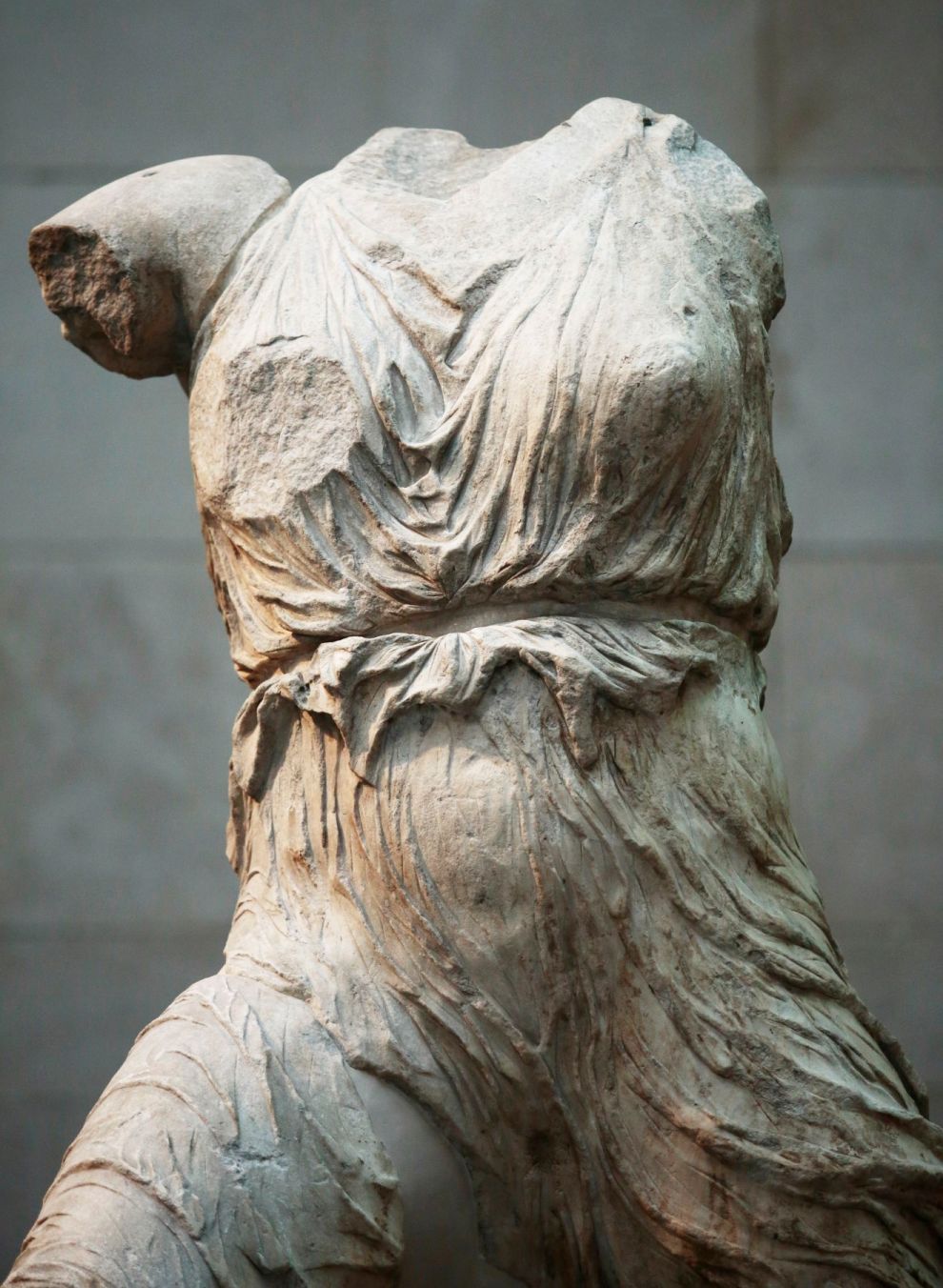
THE ELGIN MARBLES AT THE BRITISH MUSEUM (PHOTO: MARKOS CHOUZOURIS / EUROKINISSI)
We learned of secret meetings between the Prime Minister himself and the Director of the British Museum, George Osborne, while newspaper headlines claimed that we were closer than ever to a repatriation agreement. However, everyone's hopes were yet again dashed when Rishi Sunak's official spokesman made it clear that the British Museum is legally prohibited from dismantling its huge collection and that the British government is not considering amending or changing the museum's law.
It was certain that this would happen. That is why a few days ago we spoke with 4 leading researchers about how feasible a repatriation in the true meaning of the term was possible and not a "repatriation" using the model of the Stern collection.
After the publication of this article, we were contacted by the long established British Committee for the Reunification of the Parthenon Marbles, as we had made a distinction between the "British Association for the Reunification of the Parthenon Sculptures" to which Matthew Taylor belongs. The latter on November 18, in an article published in "The Scotsman" wrote: "Solution for the "Elgins"? How the American multimillionaire Stern created a model for the reunification of the Parthenon sculptures in Athens". In this article he expressed the opinion that "previous negotiations are stuck for the time being on the issue of property. But what if the British Museum recognised ownership of the works in Greece, while retaining the rights to exhibit them for the time being? Surely this could be a big step forward?"
The BCRPM recently referred to a New York Times report and to the statements of Gary Vikan, former director of the Baltimore Museum, who said: "If someone tells me that by sending the "Elgin Marbles" back to Greece, somehow the British Museum will be emptied, it is nonsense."
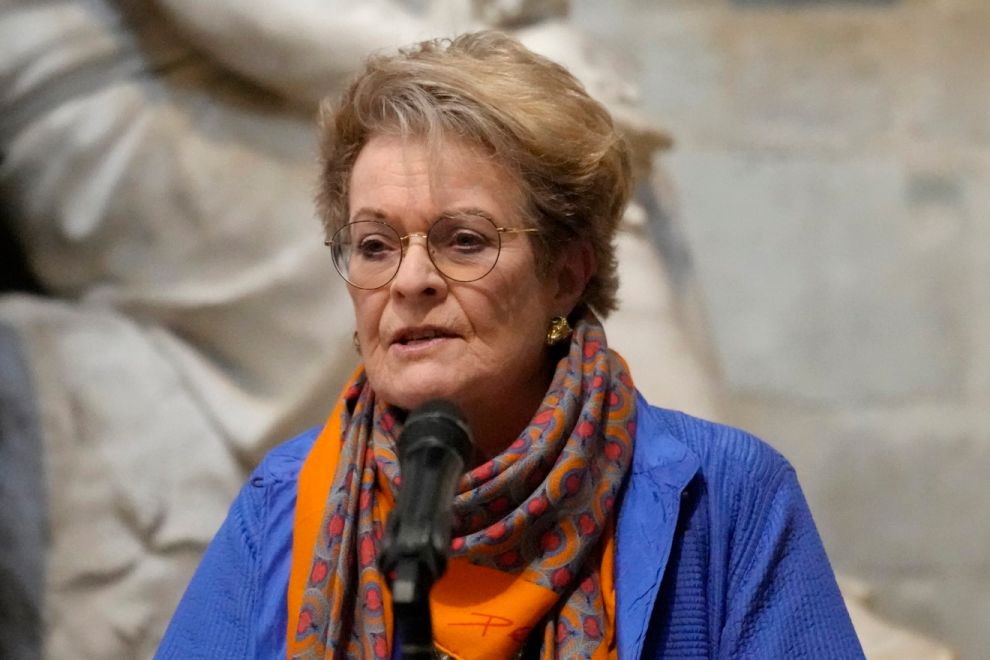
Janet Suzman AP
We spoke to the Chair of the British Committee and great actress, Dame Janet Suzman, and asked her questions about the reunification of the Marbles. She claims that the reunification of the Marbles is far from clear: "The road remains long and very unclear. We all need to have patience as diplomacy slowly moves towards a solution we hope for," she tells the Magazine.
What made you want to support the case of the Parthenon Sculptures? What does this "struggle" mean to you?
I was born in South Africa and so early on I was "introduced" to the blatant injustice committed by the strongest elements against a weaker opponent. I am talking about apartheid, of course. We who have lived in a police state know these things very well. In the 18th century, Britain was an extremely powerful country, and it took what it could - because it could - from many parts of the world.
As for the "Parthenon Marbles" that Lord Elgin took from Greece as Ambassador to Constantinople, the capital of the Ottoman Empite - the truth is that no written permission to do so ever came to light. Then, as now, people are open to bribery. And so it happened then. The injustice is clear. These sculptures were part of the Parthenon edifice itself. They were forcibly cut off from the monument and removed from the country, and now it is a matter of pure dignity to return them.
To be honest, I hadn't dealt with Greece at all until I left South Africa to study theatre in the UK. With a group of young graduates from the Department of Fine Arts of my University, we flew on a fine day in 1959 from Johannesburg to Europe. I will never forget the morning when, after a long overnight flight, our plane landed in Athens. Back then there was not the current airport, but a much smaller one. We descended the steps of the plane and walking on the asphalt to enter the arrivals building, the strong sunlight made us blink for a moment.
A beautiful blue sky was above our heads. This clarity "stayed" with us every hour and minute of the 5 days we were in Greece before leaving for London. It was magical. We watched "The Phoenicians", a performance at the Herodes Atticus Theatre starring the great Katina Paxinou and it was unforgettable - it was the best introduction to the ancient classical plays one could wish for. Many years later I played Clytemnestra and Helen of Troy in a renowned production called The Greeks, produced by the Royal Shakespeare Company in 1980 at The Aldwych Theatre in London. I was already fascinated by the Ancient World when Melina (Mercouri) stormed my life a few years later.
I quickly understood that these inimitable sculptures belong to the country in which they were created, and not to a cold museum in England.
What are the memories you have of Melina Mercouri?
Melina can only be likened to a force of nature. Her strong presence swirled around us on this trip to the UK in the 80s, when she began the movement for the "liberation" of the Parthenon Sculptures from the "grey" display room in the British Museum. She was asking for their return to Greece, where they belong. Vanessa Redgrave, also known for her commitment to various political causes, supported this issue as I did. I quickly understood that these inimitable sculptures belong to the country in which they were created, and not to a cold museum in England.
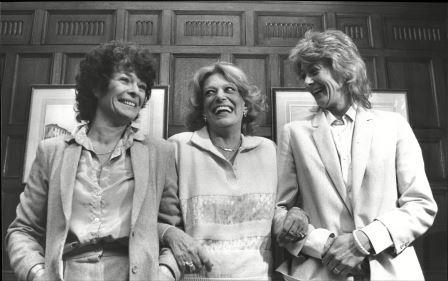
Janet Suzman, Melina Mercouri and Vanessa Redgrave at the Greek Ambassador's Residence in London in the 80's. Shutterstock 361013921
What is the purpose of the British Committee of Sculptures and how important is its contribution?
The Parthenon Sculptures are made of stone. They need an advocate to talk about them, particularly in English. Eleni Cubitt founded this committee to do just that. I knew Eleni and she knew I was in complete agreement with this just cause. Much later, when she was in a nursing home in Islington, in October 2016, I was asked to chair the British Committee for their Reunification of the Parthenon Marbles.
The cultural heritage of Greece has fully done its job in Britain: it has opened the gates of classical science to Europe. After so many years of struggle for the repatriation of these scuptures, they now belongs to where they came from and to the wonderful Acropolis Museum that was built to exhibit them as close as it is physically possible to the Parthenon, which still stands.
We are one of the many committees worldwide that want to see the Marbles reunited with their other halves. Being here in Britain, in the place where half of the surviving Marbles are currently displayed, we can talk directly with the people holding the keys who will one day "unlock" their forced stay in the British Museum. And most importantly we can continue to feed this "flame" with information on our site, write letters and articles in British newspapers and try to make as much noise as possible, while following the policies of the Greek government itself.
What should be Greece's main argument in order to return the Sculptures to their place?
The cultural heritage of Greece has fully done its work in Britain: that is, it has opened the gates of classical scholarship to Europe. After so many years of struggle for their repatriation, she now belongs to where she came from and to the wonderful Acropolis Museum that was built for this purpose.
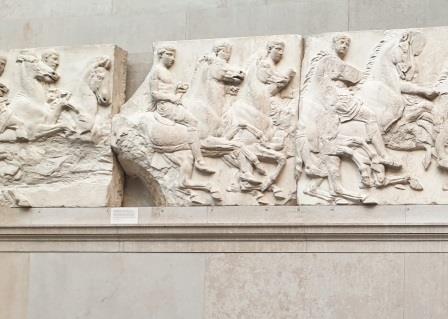
BCRPM image
Has the Greek government approached you?
Our Committee is in regular contact with the Greek Embassy in London, with the management of the New Acropolis Museum and of course with the Ministry of Culture in Athens.
Was the committee aware of the secret talks between Prime Minister Kyriakos Mitsotakis and the British Museum?
They wouldn't be secret if we knew about them.
Recently, solutions have been proposed, such as the exchange of antiquities or the recognition of ownership with an exhibition of the sculptures in London. Do you think it might be one of the avenues to negotiate with the British Museum?
These potential exchanges are long-standing as proposals for the emergence of a 'give and take' agreement. The concept of ownership is separate as a matter and of course the most sensitive, yet to be negotiated.
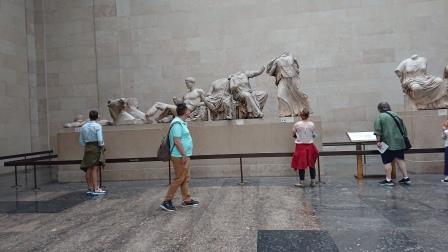
BCRPM image
Pope Francis has decided that the Vatican Museums will return three fragments of the Parthenon to Greece, amid a global account in which Western institutions have begun to return objects to their countries of origin. At the same time, we read in many articles that the Marbles belong to the "world" and therefore should be left where "everyone" can enjoy them. What do you think?
The British Museum has a unique collection of global artefacts. It has over 100,000 Greek artefacts. It is the ideal place to study "visually" the cultures of the whole world. However, fashion and opinions are changing...
The return of the Benin Bronzes recently from the Horniman Museum and the University of Cambridge, the fragments of the Parthenon returning to Greece from the Vatican, but also the rethinking of repatriations from other major institutions in the UK and Europe, mark a change of attitude and respect for other cultures. This is something that is to be warmly welcomed.
People are moving forward in Italy and I hope that the British Museum will follow this path.
I would also add that with Mrs. Cubitt, the Honorary Secretary of the BCRPM, we were in contact with the Vatican Museum even before the Acropolis Museum opened. They, too, were surprised that in the UK there was a Committee for the Reunification of the Parthenon Marbles! At that time their own laws prevented an unconditional return, and therefore they loaned to the Acropolis Museum a fragment of about 20 centimeters. It comes from the northern frieze of the Parthenon and depicts the head of a young man carrying offerings in the Panathenaic procession. In 2008 our committee had contacted the then director of the Vatican Museums, Francesco Buranelli, who at the time spoke of the generosity of the spirit in the reunification of the fragmented marbles.
In 2016 Pope Francis appointed the first female Director of the Vatican Museum (Barbara Jatta, an Italian art historian) and now, in 2022, he has made this great donation to His Beatitude Jerome II, not only with one fragment, but with three. In other words, he did the right thing. People are moving forward in Italy and I hope that the British Museum will follow this path also.
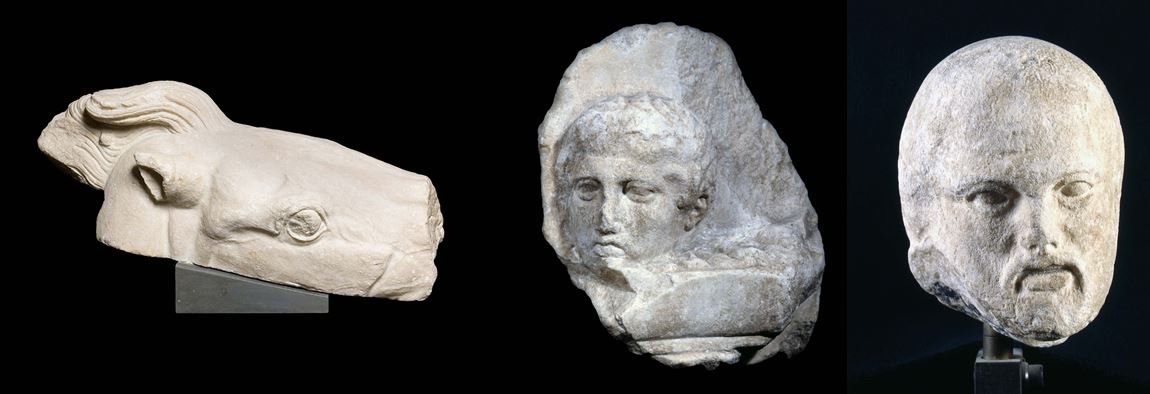
How optimistic are you about the reunification of the Parthenon Marbles?
I am and have always been optimistic. The pressure is rising, the tide is turning, exciting exchanges I am sure will take place and modern technologies will certainly play an important role. All museums have to deal with the changes brought about by history (e.g. the Rijksmuseum in the Netherlands and the Louvre) and some need, as we see, more time to find a way to respond while maintaining their glamour at the same time. And laws may need to be revised.
To read the original ariticle in Greek online, follow the link here.